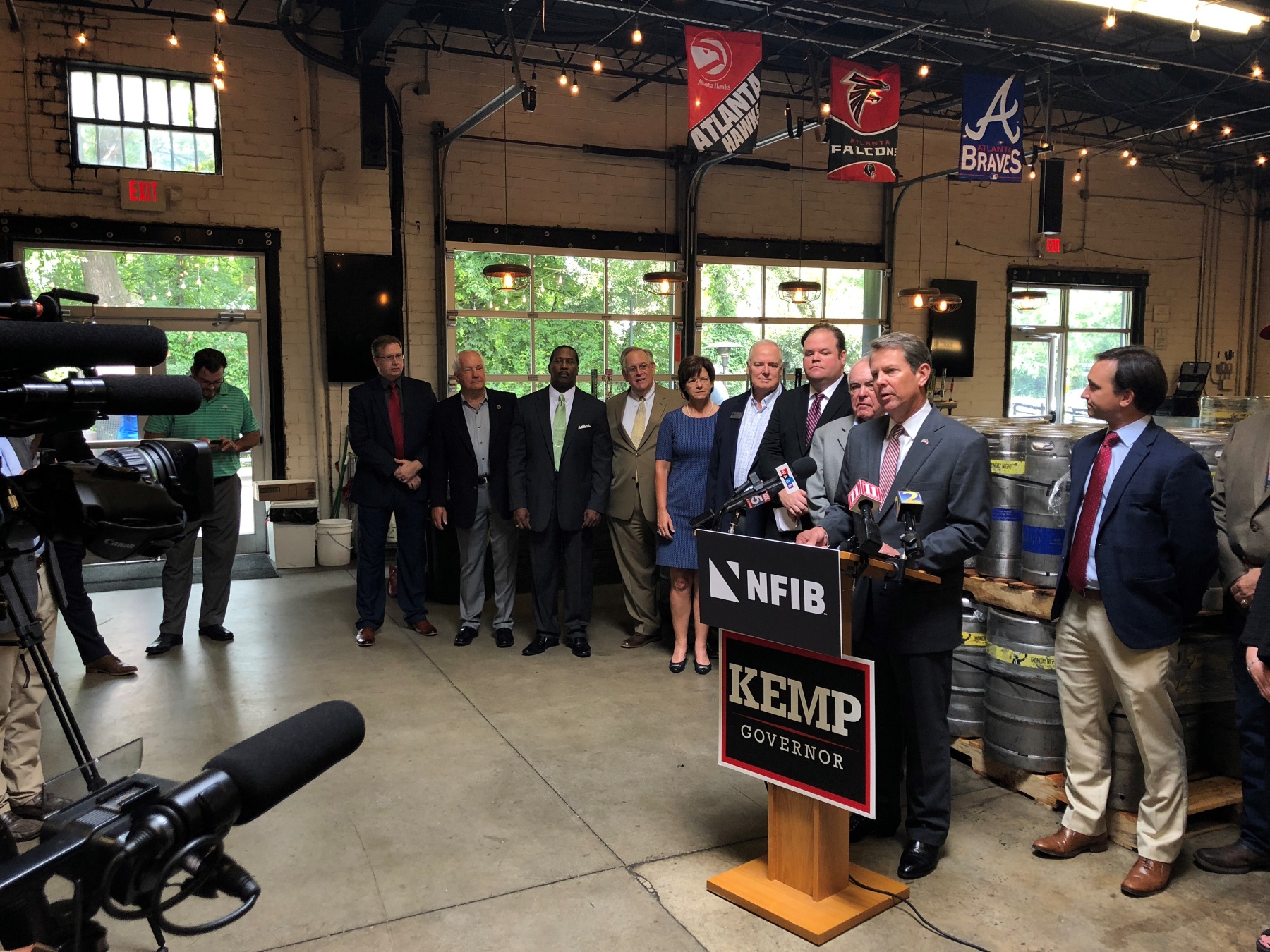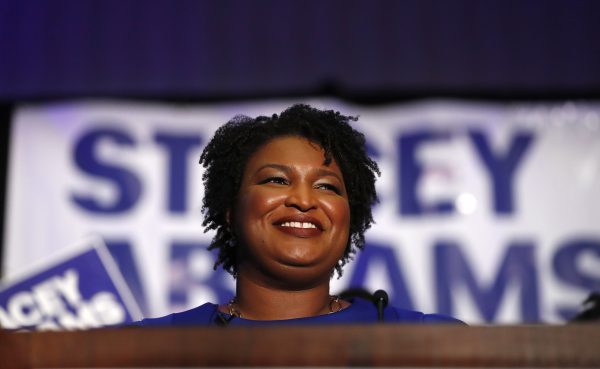Kemp And Abrams: 2 Entrepreneurs, 2 Small Business Policy Priorities

Republican Brian Kemp announces an endorsement from a small business association this week. Kemp and Stacey Abrams, his Democratic opponent in the Georgia governor’s race, have their own plans on how to help the state’s small businesses.
Emma Hurt / WABE
The two candidates running to be Georgia’s next governor share something: small business experience. They agree that small businesses in Georgia need help, but they disagree on what exactly that help should look like.
This week, Republican candidate Brian Kemp was endorsed by the Georgia chapter of the National Federation of Independent Businesses, a small business association.
At the event, he told a story he’s repeated along the campaign trail.
“I started my first business with a shovel and a pickup truck. I was on the job before daylight, digging ditches, pouring concrete and swinging a hammer. Literally doing whatever it took to get the job done.”
Kemp said he ran for his first political office because he got frustrated by government overreach. That still defines his policy priorities and, in fact, is listed as No. 1 on his policy plan.
“I’ll slash rules and regulations that make it tough on small business people to create jobs, expand and invest in their local communities. We’ll cap state spending and have real tax reform that puts more money in hardworking Georgians’ pockets.”
It’s something he said he’s been working to do as secretary of state, which is the office that oversees many of those regulations.
In response to a question about which regulations he’d like to cut, he said that would come from a “putting Georgians first citizens committee” he will create “on day one,” comprised of business people, not bureaucrats.
Democratic candidate Stacey Abrams has a small business story, too.

“This is personal for me. I’m a small business owner. I’ve owned a few small businesses,” she said at a July event on this policy topic. “One was called Nourish. It was a bottled water company for babies and toddlers.”
Ultimately, that business closed, she said, when it couldn’t get the funding it needed because credit restrictions were “too tight.”
“The problem was when the grocery store wanted a bigger order, we faced what so many small businesses faced,” she said. “We could not scale without access to capital, but we could not get access to capital because we were not yet at scale.”
Abrams said she and a business partner then started another company, NOW Account, to help small businesses get that access to capital.
“And I want to use what I’ve learned from that experience to help small businesses throughout the state of Georgia,” she said.
So what’s her plan?
A $10 million small business fund made up of federal and state financing and private lenders. She said it would help businesses that can’t qualify for current funding options, like loans.
Kemp does not think that will help. He said the priority should be “creating the marketplace where the private sector wants to come and invest and spend their money here.”
“I trust my local banker,” he said. “If they’re going to give me a car loan or a small business loan or a line of credit, they’re going to check that thing out. We need to let them be able to do their business. They can move quicker than government can and $10 million is a joke for doing something like that.”
While Kemp admitted it’s “a lot of money,” he called it a “drop in the bucket” in terms of investment funds flowing through Georgia. According to BIP Capital, about $1.2 billion in investment deals were done in Georgia in 2017.
“As someone that has helped start a small, community-based bank, there’s plenty of small, community-based banks and plenty of big banks that are in our state that have plenty of capital that know the market better than some government politician, including myself,” Kemp said.
Jason O’Rouke is vice president of public policy and federal affairs at the Georgia Chamber of Commerce.
“Those are the two issues that we hear the most from people who are trying to either start or expand a business: difficulty in getting access to capital and difficulty in navigating government mandates and regulations,” he said.
“I think both of those are legitimate, real concerns that lots of small business owners would feel. I think it’s just a difference of perspective about which one is the priority.”








